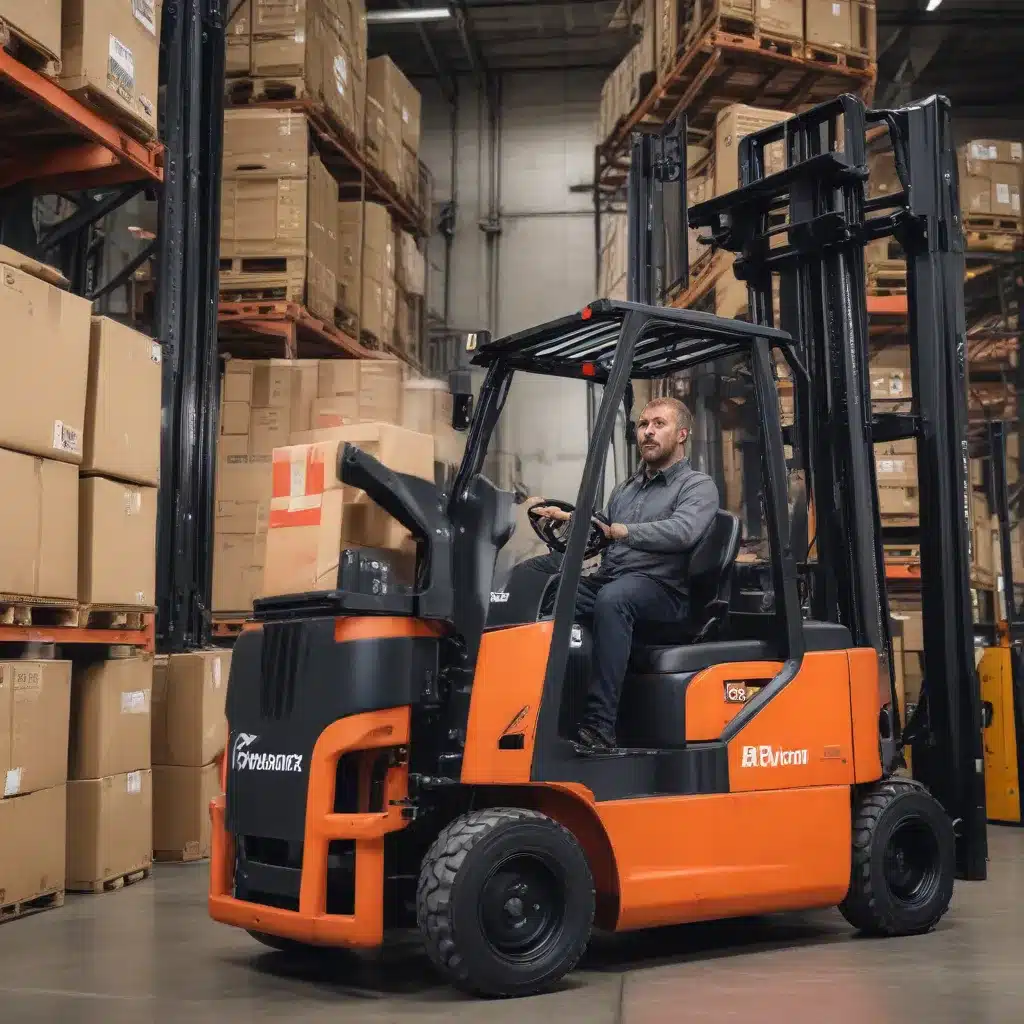
Embracing the Age of Automation: Transforming Forklift Training with AI
As the forklift industry continues to evolve, driven by technological advancements and shifting workforce demands, it is crucial for organizations to adopt innovative learning and development (L&D) strategies. In the age of automation, providing effective forklift operator training is no longer just about imparting technical skills – it requires a holistic approach that empowers employees to thrive in an increasingly dynamic work environment.
One of the most promising solutions lies in the integration of artificial intelligence (AI) into forklift operator training programs. By harnessing the power of adaptive learning algorithms, organizations can create personalized training experiences that cater to the unique needs and learning styles of each individual operator. This strategic shift not only enhances skill acquisition but also fosters a culture of continuous learning and adaptability – two essential qualities for success in the forklift industry of the future.
Adaptive Learning: Personalizing the Forklift Training Experience
Adaptive learning algorithms are revolutionizing the way forklift operators acquire and retain critical skills. These AI-powered systems analyze learner data, such as performance, progress, and engagement, to dynamically adjust the content, pace, and assessment methods of the training program. This personalized approach ensures that each operator receives the tailored support they need to master forklift operations effectively.
Optimizing Content Delivery
Adaptive learning algorithms can identify the unique learning preferences and strengths of each forklift operator, allowing the training program to deliver content in the most effective format. For instance, some operators may benefit more from interactive visual simulations, while others thrive on hands-on practical exercises. By adapting the training materials to these individual needs, the learning experience becomes more engaging and impactful, leading to improved knowledge retention and skill application.
Adaptive Pacing and Assessments
Forklift operators learn at different rates, and adaptive learning algorithms account for these variations. The training program can dynamically adjust the pace of the curriculum, providing additional support or accelerating the learning process based on the operator’s progress. Furthermore, the assessment methods are tailored to each individual, ensuring that the evaluation accurately reflects their understanding and competence.
Continuous Feedback and Personalized Guidance
Adaptive learning systems provide real-time feedback to forklift operators, highlighting areas of strength and identifying opportunities for improvement. This ongoing assessment enables the training program to offer personalized guidance and targeted interventions, empowering operators to address skill gaps and continually enhance their forklift operation expertise.
Embracing a Culture of Continuous Learning
By integrating adaptive learning algorithms into forklift operator training, organizations can cultivate a culture of continuous learning and adaptability. This strategic shift prepares forklift operators to navigate the evolving demands of the industry, equipping them with the agility and resilience to thrive in the face of technological advancements and changing workplace dynamics.
Fostering Lifelong Learning Mindsets
Adaptive learning technologies encourage forklift operators to take an active role in their professional development, fostering a mindset of lifelong learning. As operators experience the benefits of personalized training, they become more engaged and motivated to continuously upgrade their skills, embracing the evolving nature of the industry.
Adaptability and Resilience in the Workplace
The forklift industry is no stranger to technological disruptions and shifting market demands. By empowering forklift operators with adaptive learning tools, organizations can ensure that their workforce remains agile and resilient, capable of adapting to new challenges and embracing innovative forklift technologies as they emerge.
Enhancing Operational Efficiency and Safety
Forklift operator training programs that leverage adaptive learning algorithms can contribute to improved operational efficiency and enhanced safety. As operators become more proficient and confident in their skills, they can navigate forklift operations with greater precision, reducing the risk of accidents and optimizing productivity.
Integrating AI-Powered Forklift Operator Training
Implementing adaptive learning algorithms in forklift operator training programs requires a strategic and well-planned approach. Organizations must consider the technological infrastructure, employee engagement, and change management strategies necessary to ensure a successful integration.
Technological Infrastructure and Platform Selection
Selecting the right learning management system (LMS) or training platform is crucial for effective AI-powered forklift operator training. These platforms should offer seamless integration of adaptive learning algorithms, providing the necessary data analytics, personalization features, and user-friendly interfaces to deliver a transformative learning experience.
Employee Engagement and Change Management
Forklift operators may initially be apprehensive about the integration of AI into their training programs. To address this, organizations must prioritize clear communication, change management strategies, and employee training on the benefits and functionality of the adaptive learning system. By fostering a collaborative and supportive environment, organizations can ensure a smooth transition and maximize the impact of the new training approach.
Continuous Optimization and Feedback
Implementing adaptive learning algorithms is an iterative process. Organizations must regularly monitor the performance of the training program, gather feedback from forklift operators, and continuously optimize the system to maintain its effectiveness and relevance. This feedback loop ensures that the adaptive learning algorithms adapt to the evolving needs of the forklift industry and the workforce.
Conclusion: Embracing the Future of Forklift Operator Training
The integration of adaptive learning algorithms into forklift operator training programs represents a significant step forward in the industry’s journey towards technological advancement and workforce empowerment. By embracing this transformative approach, organizations can create personalized learning experiences that not only enhance skill development but also foster a culture of continuous learning and adaptability.
As the forklift industry continues to evolve, the adoption of AI-powered adaptive learning systems will be a critical differentiator, enabling organizations to cultivate a resilient and agile workforce capable of navigating the challenges and opportunities of the future. By investing in this innovative training methodology, forklift operators and their employers can position themselves for long-term success in the dynamic landscape of the forklift industry.

